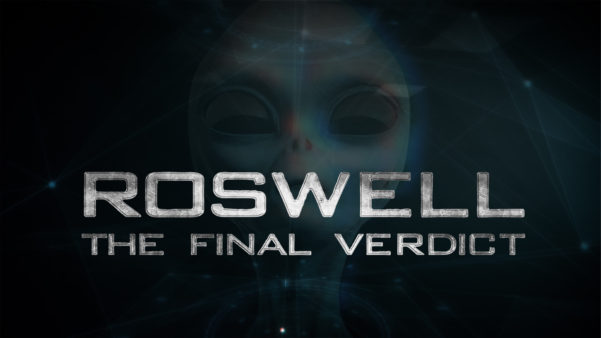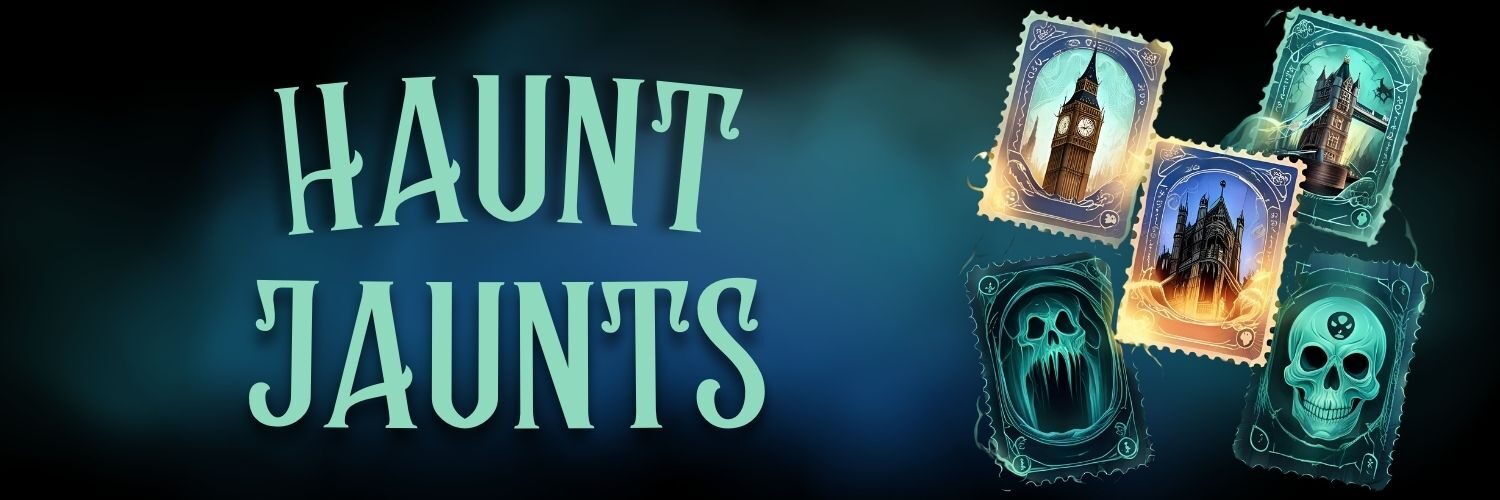
Roswell: The Final Verdict invades discovery+ on World UFO Day, July 2. But who will like it and who won’t? Let’s look at the reasons the series is both likable and not, starting with the positive first.
5 Reasons to Like Roswell: The Final Verdict
1. Well-produced
Like so many Discovery series, mini-series, and specials, Roswell: The Final Verdict is another high-quality production. Meaning, they utilize a good blend of stock and original footage that’s all woven together in an easy-to-watch format.
2. Great blend of elements
They seamlessly combine re-enactments of events, firsthand witness testimony (in some cases audio-only, in other cases recorded), expert interviews and analysis, plus the artificial intelligence (AI) lie detection software. It all comes together to tell the story in an interesting way.
3. A notable variety of experts
If Ufology is your thing, you’re going to recognize a lot of the faces in this miniseries. There are UFO journalists, investigators, former government officials, college professors, scientists, and more. If you’re looking for a show with credible and reliable sources interpreting the data being presented, Roswell: The Final Verdict strives to deliver them.
4. The AI lie detection software
The Roswell incident is easily one of the most infamous and controversial stories in conspiracy theory history. Were the witnesses telling the truth? Did the government try to cover up an alien spacecraft crash landing?
Roswell: The Final Verdict uses AI lie detection software to analyze firsthand witness accounts. Whether it’s as accurate as they portray or not, I don’t know, but it is interesting and unlike anything we’ve ever seen before.
5. Compelling subject matter
Whether you’re into UFOs or not, everyone is familiar with the story of Roswell. As the narrator states, it’s “the first and most controversial UFO conspiracy.” Or, as Rick Schmitt, one of the experts put it, it’s the “granddaddy of all UFO cases.”
Could this series really shed new light on the decades-old case and be the final verdict once and for all? Did whatever witnesses claimed happened in 1947 actually happen? Did the government really cover up evidence of alien life and technology? It all makes for a compelling premise for sure.
5 Reasons Not to Like Roswell: The Final Verdict
1. Biased
The miniseries masquerades as presenting the case in an unbiased way, but it’s definitely biased from a believer’s perspective. None of the experts or authorities are skeptics or even what I call on-the-fencers. Even without the AI lie detection verification, they believe the firsthand witnesses are telling the truth and that Roswell is part of a conspiracy. That gives it an unbalanced perspective.
2. Blame game finger-pointing
One of the things the show does repeatedly is blames the government, military, and the media for burying the “true” story of Roswell. (Which is also an example of the bias.)
Were they all in cahoots with one another? It implies that they were, but it never specifically says that or provides any concrete proof of collusion or cover-up. It’s all conjecture and supposition.
Yet, as long as the media or military support the theory that Roswell really happened, they support them. If they don’t, they try to discredit them as lying. It’s a little disjointed.
3. The AI lie detection software
Is it really trustworthy? It’s interesting people are willing to suspend disbelief and trust this lie detection software, yet they’ll throw shade at the government, military, and media.
4. Leads viewers to predetermined conclusions
Sometimes my degree in Communications comes in handy, especially all those persuasion courses I took. Makes it easy to spot when someone’s trying to manipulate a message. In the case of Roswell: The Final Verdict, they do it big time. Subtly, yes, but noticeably. (Maybe even for astute and discerning non-Communications majors.)
They definitely try to skew viewers into drawing certain conclusions.
For example, at one point in the first episode, Rick Schmitt comments about the debris field Major Jesse Marcel described when he went to investigate the crash site. Schmitt says, “If AI proves his testimony true, it would be of the highest order.”
Right there, the nugget is planted, “Oh, this will prove crucial!”
Next came Jason McClellan, a UFO journalist, who explained how a lot of what people know bout the Roswell debris comes from the accounts of Jesse Marcel.
That reinforces what Schmitt said. Again, they want viewers to think, “This must be very important.”
Then Heather Wade explains, “If a man like him (Major Marcel) would simply make up stories, anybody would, then that will diminish credibility in the entire Roswell case.”
That establishes how important Marcel’s testimony is.
The trouble is, this was the statement from Marcel that was put through the AI detector: “There was so much of it. It was scattered over such a vast area.”
He was referring to the debris field, which apparently some people feel he’s lying about and others feel AI will prove he was telling the truth all along.
The problem is, chances are he really did see debris of some kind. That doesn’t mean it was from an alien spacecraft.
Of course, the AI finds his statement true, which seems like a much bigger and potent reveal because of the expert statements leading up to it and skewing perceptions to believe its much more significant than it really is.
5. The “trust no one” message
At one point in the first episode, they try to determine if a man named Kaufman delivered any of the debris to President Truman. Kaufman says Truman got it, but the government has always denied he did. It’s one of the only times the AI determines something is untrue.
But instead of leaving it at that, a comment is made about how Kaufman may not be lying. His AI-evaluated testimony had to do with whether the debris was delivered to the highest person in charge, a.k.a. the Commander-in-Chief, a.k.a. POTUS. Then they imply maybe there was someone higher up than Truman.
This was a little uncomfortable given the Election Shit Show of 2020. The last thing our country needs is any more seeds of distrust sown against our government. Healthy skepticism is fine. Questioning the authorities is always necessary. But always believing in ulterior and secret motives? Not too healthy.
The Verdict on Roswell: The Final Verdict
How many books and documentaries have covered the Roswell incident? Tons. Roswell: The Final Verdict does find a way to put a fresh spin on the subject with the AI detection software angle.
Believers will feel vindicated. The curious will be entertained. On-the-fencers may be swayed. Skeptics, well…Ben Hansen, who is one of the experts in the show, put it best in my conversation with him: just leave them be. They’re too fully entrenched in their ideas to consider another view.
You’ll be able to hear him say it when I post his podcast episode. I’ll write a post summing it up so you know when it’s out.
For More Info
The first three of six episodes of Roswell: The Final Verdict starts streaming on Friday, July 2 on discovery+.
A new episode will be released every Friday after that until July 23.
For further details, visit discoveryplus.com.
You can also follow #RoswellFinalVerdict on socials for exclusive content, episode explainers, the latest updates, and additional insights.
Check-In
Do you think we will ever get an ultimate final verdict in the Roswell case and know the truth once and for all? Or will it remain a timeless mystery?
Courtney Mroch is a globe-trotting restless spirit who’s both possessed by wanderlust and the spirit of adventure, and obsessed with true crime, horror, the paranormal, and weird days. Perhaps it has something to do with her genes? She is related to occult royalty, after all. Marie Laveau, the famous Voodoo practitioner of New Orleans, is one of her ancestors. (Yes, really! As explained here.) That could also explain her infatuation with skeletons.
Speaking of mystical, to learn how Courtney channeled her battle with cancer to conjure up this site, check out HJ’s Origin Story.

I wonder about AI lie detection technology too. It sounds so Orwellian. I don’t think we’ll EVER have a confident verdict re Roswell until we have good communication going with extra terrestrials a) if they actually exist, and b) if they actually talk to us instead of invade us and take over our planet!
Guess what happened with this comment? It earned you 3 more bankable bonus points because it had everything: thoughtfulness, wisdom, and wit!
Woohoo, go me! Thanks, Courtney!
LOL! Thank YOU for (a) taking the time to comment and (b) always leaving such great ones!
What keeps me thinking is:
When the AI find the statement of a relative to a first-hand witness to be true, this just means that this first-ahnd witness actually told their relative just this, not if it was true in the first place.
If I told you “I met bigfoot” and the AI finds you telling “Gab said he met bigfoot” to be true, it does not mean a thing about the truth of my initial statement.
Hey Gab! You hit the nail on the head of what was bothering me. First of all, these people clearly believed what they said was true, was true. That doesn’t mean it was, just as your great examples demonstrated. Also, some of the statements themselves that they analyzed as being true or not struck me as, “Really? That’s what you’re going to see if they’re lying about or not?” But I’m glad someone else felt the same way about the AI not really proving the veracity of anything too. And I’m even happier you stopped by to leave a comment. THANK YOU!